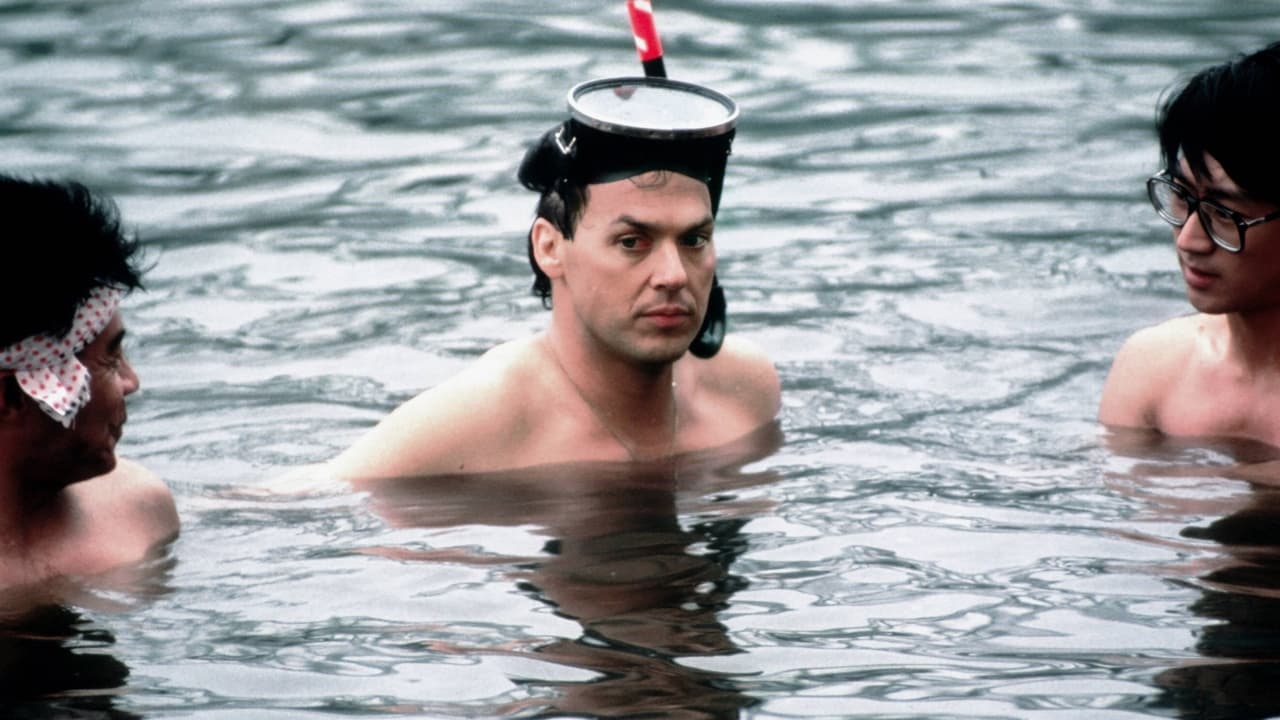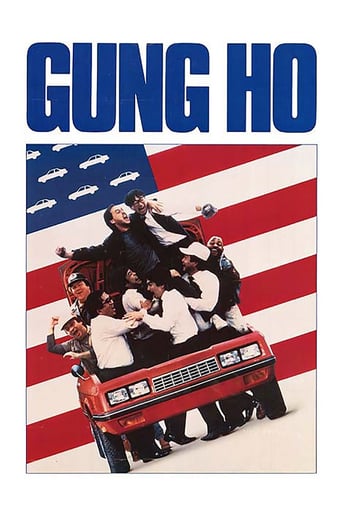

The Worst Film Ever
... View MoreI think this is a new genre that they're all sort of working their way through it and haven't got all the kinks worked out yet but it's a genre that works for me.
... View MoreOne of the worst ways to make a cult movie is to set out to make a cult movie.
... View MoreThere are moments that feel comical, some horrific, and some downright inspiring but the tonal shifts hardly matter as the end results come to a film that's perfect for this time.
... View MoreWith no laughs but with important messages, "Gung Ho" manages to be a reflexive entertainment about the cultural and economical clashes of two nations when they join forces to rise from the ashes an automobile factory that can be the only hope of saving a town. Michael Keaton plays an American executive who gets the job of rescuing such factory with a new leadership coming from Japan with a desperate executive (Gedde Watanabe) trying to save his career from potential failure. The latter's task is to command the American plant and their workers, accustomed to work in a particular way, trying impose the Oriental methods of working for long hours for the benefit of the company and such clashes with the interests of Keaton who's trying to look good before his friends who aren't used to such working journey. But let's face it: the movie isn't funny. Babaloo Mandel and Lowell Ganz are terrific writers ("Splash", "Parenthood") but they didn't create much moments we could say they were funny, most of the time is just using of caricatures to make some amusing moments, they barely work, maybe two or three scenes. Their concentration to the more engaging aspects was what made "Gung Ho" something really worth seeing. It pokes fun on the culture comparisons between U.S., specially when it comes to both nations traditions but it also establishes a greater sense of supporting each other, one might be better than the other but only together they come up with something bigger, better and stronger. Having a movie like this made on a decade where American superiority was presented in every single movie and also in politics is something of a miracle. It basically says: "We're no longer the strongest nation in the world, neither the most efficient but we can aspire to be if we follow some other examples around the world". Sure, it doesn't paint a fair picture for both sides (Japanese as workaholics who can't contest their bosses and Americans as lazy and incompetent), often recurring to stereotypes but presents something good out of those. Although a little sloppy, clichéd and never serious enough, "Gung Ho" can be used as a source of inspiration, at least for those who have a company and doesn't know how to bring out the best with their employs, it's always there to bring out of the best of a team, push them to the limits and show them the advantages of following new directives. I know this movie is something of a classic between Administration students in here, and most of them enjoy it. Out of this department, it might be a disappointment for Keaton and Ron Howard fans, they're not at their best. The supporting cast formed with the likes of Mimi Rogers, George Wendt, John Turturro, Rance and Clint Howard save this for a bit, but the most interesting in scene is Watanabe, the funniest in the show. In the end, it reaches its purpose of presenting a parallel between cultures, but never takes our fully enjoyment, neither much of our laughs. Easy to watch and quite motivational though. 7/10
... View MoreI saw this movie again as an assignment for my management class. Were to mainly comment on the different management styles and ideas on quality(of the product). I did rent this one back in the eighties and I remember it to be good(but not great)movie. I've always liked Michael Keaton's style and delivery. He was a perfect fit for the movie.I am surprised to see some of the low ratings for this movie. I grant you yes it's no Oscar winner but it does have decent comedic value. It's more of a subtle comedy rather than a all-out comedy farce. I also find some of those that felt this was an inaccurate film on cultural and business differences. I beg to differ. I grant you again that there are a lot of generalities and dramatizations but then again this is Hollywood film not a documentary. From what I've read about differences between Automakers on both sides of the Pacific at that time many of the principle ideas were accurate for the time.Some of the basic differences were that Japanese workers made to feel as part of the company as a whole. Teamwork was emphasized. They perhaps made the company above all else. Where American workers had more of a management verses labor type of relationship. The individual was more important than the company. I'll probably get some hate email over that comment I'm sure.Another difference was how quality was viewed and whose responsibility it was to fix. In many Japanese plants defects or problems are examined and fixed at the time it is discovered. Rather as one character in the movie put it "it was the dealers(meaning car dealer) problem".Many of these things are probably dated but I'm sure some are still around as many US car makers are still struggling to keep up with the Japanese. If one is more interested in the subject of American, European and Japanese automakers I can recommend a book that studies this subject in more detail and was done around the same time period. The book is called "The machine that changed the world" by James Womack, Daniel Jones and Daniel Roos. It's about a study of automakers during and before the time period that this movie covers. Parts are bit dry but I think you'll find that it backs up much the movie also.
... View MoreIn addition to having a humorous, well-written script, this movie can teach current businesses the value of good management practices and a look at Unions. We should all be thinking globally, especially in business. No one knows it all, and everyone can teach us something. If we remain open-minded and work together great things can happen.This movie provides a lesson in close-minded management, the value of honesty, friendship and family and more importantly the value of admitting when you were wrong. The script reveals the differences between cultures and their business practices and skillfully focuses on the ensuing confrontation between them.
... View MoreI remember watching "Gung Ho" as a child with my mother, and wondered why she would always cry in the last few minutes. I, of course, found the entire movie hilarious, particularly the mannerisms of the characters. It wasn't until I was much older and watched it again that I realized how much deeper this show actually is.Michael Keaton and Gedde Watanabe shine in their roles as the reluctant mediators. Keaton ceases to amaze me with his real-life style of line delivery, and Watanabe adds humor and pathos to the mix. I also thought that Patti Yasutake (Umeki) was simply fabulous in her role as the comic relief.I think this movie is one of the most underrated films of the 80s. We can all learn a lesson from the merging of the American and Japanese workers in this film...sometimes you really *can* have "the best of both worlds." And now I understand why my mother felt the way she did in those closing moments. I'd rather have one of those cars, too.
... View More